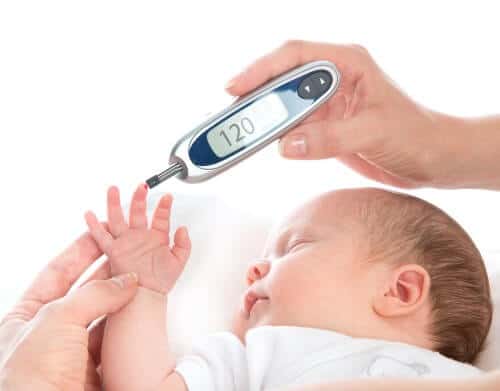The preliminary research in BH and cell cultures that led to the launch of the clinical trial was carried out by the group of Dr. Eli Lewis at the Faculty of Health Sciences, Ben-Gurion University of the Negev.

In the first clinical trial of treatment with a drug that is safe to use for type 1 patients (youth) near the time of their diagnosis, no side effects were observed following the administration of AAT in the subjects, an important result compared to parallel clinical trials examining a variety of approaches to the treatment of type 1 diabetes. In addition, a third of the patients began to produce insulin by themselves.
The relationship between inflammatory responses and the mechanism of onset of autoimmune type 1 diabetes (formerly 'juvenile diabetes') is well established. In a study published these days in the prestigious Journal of Clinical Endocrinology & Metabolism, the safety and effect of treatment with an anti-inflammatory protein called alpha-1 antitrypsin (AAT) were examined. This is a phase I clinical trial (open label) carried out in collaboration between Ben-Gurion University of the Negev and the University of Colorado, USA. The preliminary research in BH and cell cultures that led to the launch of the clinical trial was carried out by the group of Dr. Eli Lewis at the Faculty of Health Sciences, Ben-Gurion University of the Negev.
Twelve subjects who were diagnosed near the trial with type 1 diabetes were treated with an intravenous infusion of AAT once a week for 8 weeks, and then underwent a follow-up lasting XNUMX year. The study also found that among one-third of the subjects, the AAT treatment prevented the overall decrease in insulin production that characterizes the onset of the disease, and even caused an increase in the ability to produce insulin compared to baseline values. The patients who 'responded' to the treatment were those who joined the study closer to their diagnosis.
In the follow-up, samples of white blood cells were examined in the patients; Unexpectedly, for 9 months no change was recorded in the behavior of the cells. However, after 9 months from the start of the AAT treatment, it was found that the cells in the blood circulation of the subjects moved to a very moderate inflammatory profile, especially in the patients in whom the diabetes was inhibited. This, even though the treatment was actually limited to only 8 weeks. One of the hypotheses arising from this result is that the young immune system cells that develop in the patients' bone marrow undergo a significant decline in the presence of the AAT treatment, which is manifested only when the cells are released after 9 months into the blood circulation.
This clinical study is the first of three, both in terms of the date of its initiation and in terms of the date of publication of its results. Another clinical trial examined the treatment in question in a slightly modified version at the Diabetes Research Center in Boston, USA, and another study was recently completed in Israel at Schneider Hospital and Assaf Harofeh Hospital. These are studies that are planned to appear in scientific publications soon. At the same time, three new clinical trials have just been opened at these three sites, in order to recruit more patients and to examine improvements in treatment doses. Following the conclusions of the present study, the recruitment of patients is limited to 6 months from the date of diagnosis.
For more details, you can contact Dr. Eli Lewis. Dew. Tel. 054-2060531.
Link to image:
http://imagelibrary.bgu.ac.il/pf.tlx/-r4-Wt-RQyHDj
Caption for the photo:
Dr. Eli Lewis
Photo: Danny Machlis, Ben-Gurion University

2 תגובות
These experiments are so important, and I very much hope that the day will come and we will have a breakthrough that will lead to a change in the life expectancy of diabetics, thank you very much for the research
Dear Dr. Lewis,
We have heard so many times about mice being cured of diabetes, studies have always stopped at this point.
So I have only one request, don't stop researching and don't despair, give humans a cure too...